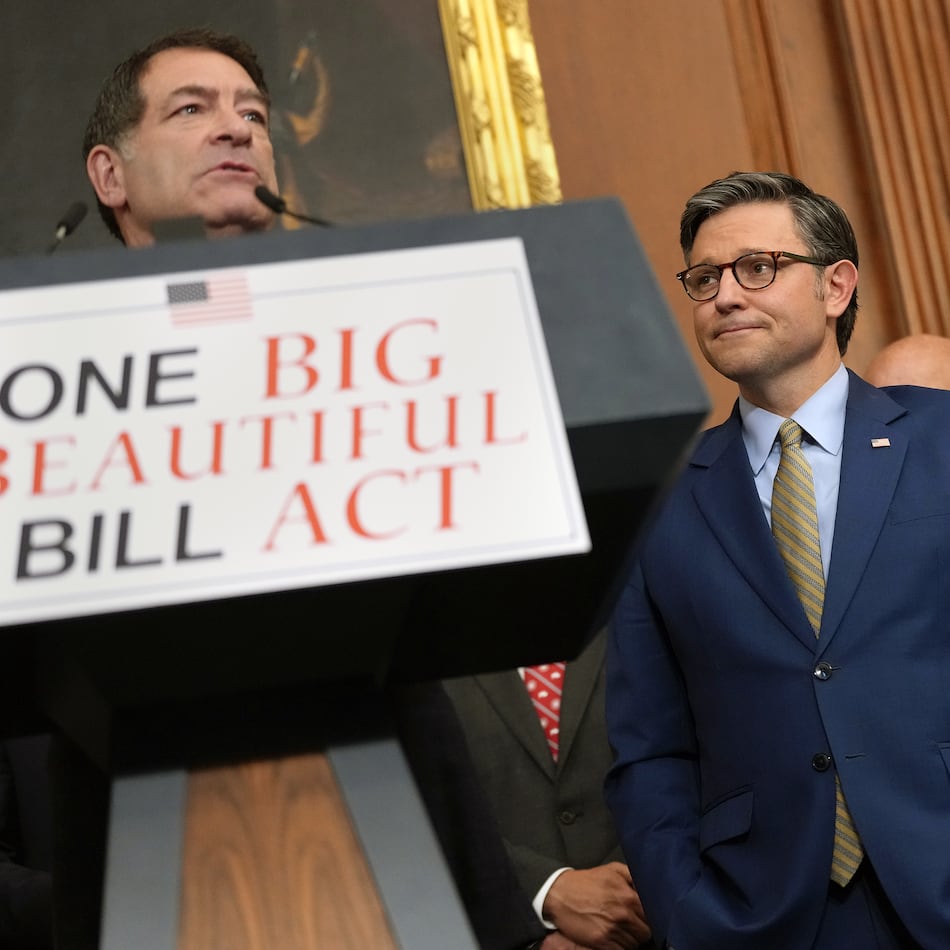Democratic candidate for governor Roy Barnes appeared alongside a pair of local businessmen at a news conference in Midtown Atlanta’s Technology Square this month, trumpeting his plan to revive Georgia’s economy.
Barnes highlighted a few of his ideas as a campaign staffer busily distributed his “Jobs Plan” to his audience. That plan spans 17 pages and touches on everything from expanding access to high-speed Internet to spending $25 million to create a biomedical research park in Georgia similar to the Research Triangle Park in North Carolina.
But the centerpiece of his plan involves wiping out Georgia’s capital gains tax for certain investors for two years and offering $300 million in payroll tax credits for companies that create more jobs or raise salaries. Barnes is predicting his proposals would spur investments and hiring in Georgia, which has been suffering from stubbornly high unemployment rates.
The Atlanta Journal-Constitution spent several days reviewing these proposals with local economists and businesspeople. Here’s what they said:
● Economists dismissed Barnes’ claims that eliminating the capital gains tax for two years would pay for itself.
● Experts disagreed how effective that tax cut would be and questioned whether Georgia could afford Barnes’ proposals now, given that the state is facing a huge budget shortfall.
● Critics raised concerns that companies could benefit from the proposed payroll tax credits for hiring they would do anyway.
Campaigning on the slogan “Make Georgia Work,” Barnes says his plan is focused on creating new jobs in Georgia. His proposal to offer capital gains tax breaks is based on concerns that the federal government could raise its capital gains tax rate, which is now at 15 percent. Georgia’s rate is 6 percent. The tax applies to profits on assets such as stocks and bonds.
“What I am trying to tap into is people who have been sitting on appreciated assets who say, ‘You know, this may be the cheapest time I ever do this. I don’t have to pay any Georgia income tax, and I only have to pay 15 percent on the federal [rate], and they may raise it,’ ” Barnes said. “I am trying to create a rush of capital. We are capital starved.”
Under his proposal, the tax breaks would go to people who invest their gains in community banks, companies and properties in Georgia. Barnes has predicted cutting the tax would stimulate enough spending and growth in Georgia to pay for itself. He hasn’t put a price tag on his proposal, but state officials are estimating the tax will generate $433 million in state revenue this fiscal year.
Local economists said such a tax cut could help boost the state’s economy but not by enough to pay for itself, particularly amid a recession.
“It is not going to be self-supporting,” said Bruce Seaman, an associate professor of economics at Georgia State University.
Jeffrey Rosensweig, a finance professor and economist at Emory University, agreed.
“I haven’t seen evidence in the past that these things completely pay for themselves,” he said.
Meanwhile, some critics questioned whether Georgia could afford the loss of tax revenue. Georgia is now facing a projected budget shortfall for next fiscal year that could reach $1.8 billion, according to the Georgia Fiscal Research Center at GSU. Since 2008, three states — Rhode Island, Vermont and Wisconsin — have eliminated or reduced their capital gains tax breaks because of budget shortfalls, according to the Georgia Budget and Policy Institute, a nonpartisan think tank.
“The idea of losing any sort of revenue source seems pretty nonsensical to me when we know the things that revenue pays for — like education, teachers’ jobs and public safety — are really important for stimulating the economy,” said Meg Gray Wiehe, state tax policy director for the Washington-based Institute on Taxation and Economic Policy, a nonpartisan research group.
Wiehe also pointed to a 2002 Congressional Budget Office report that says capital gains tax cuts “provide little fiscal stimulus” because they primarily benefit richer people who would likely spend less of their additional income compared with poorer people.
Mark Bloomfield, president of the American Council for Capital Formation, said Barnes’ plan could attract investors to Georgia from other states — and countries — that have higher capital gains tax rates.
“Yes, the immediate benefit may be to the wealthy, but they are the ones who have the capital,” said Bloomfield, whose organization is a business advocacy group. “Banks aren’t lending. They need capital.”
Meanwhile, some observers, including Rosensweig, raised concerns about businesses gaming Barnes’ tax-credits-for-jobs proposal. They asked what would prevent them from firing people and then hiring others or taking advantage of the tax breaks for hiring they would do anyway. Barnes’ campaign manager, Chris Carpenter, said state rules and regulations could be put in place to protect against such cheating.
Local businesspeople were divided on the payroll tax credits idea. Tom Darrow, who owns a Roswell-based employee recruiting company and a second business that helps people find jobs, said the proposal is “totally the wrong approach.”
“Offering tax credits to companies who hire people absolutely does not stimulate companies to hire people, especially small-business owners,” said Darrow, who owns Talent Connections LLC and Career Spa, and is the past president of the Society for Human Resource Management-Atlanta. “I have got to have increased demand for my products or services, or I can’t even afford half the salary for the person.”
Emily Sanders, the CEO of Norcross-based Sanders Financial Management, said Barnes’ idea is appealing to her in that it could help her company give its employees raises.
“Our folks are very productive and work hard, and it would be nice to reward them with the help of the state of Georgia,” said Sanders, whose small firm advises people how to invest their money. “We do pay taxes to the state of Georgia, and some of that would flow back to our people.”
About the Author
Keep Reading
The Latest
Featured


